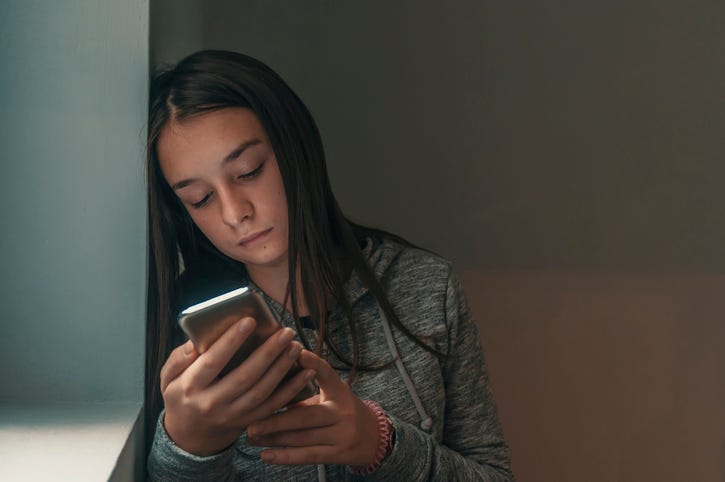
Experts are sounding the alarm on a new danger of social media: a growing number of teens are using apps like TikTok to diagnose -- or "undiagnose" -- their mental illnesses instead of seeking treatment from a doctor.
According to a recent study published in the journal Comprehensive Psychiatry, there has been a "well-documented uprise" in popular content creators with self-described tics, Tourette's Syndrome and other self-diagnosed mental health symptoms, that has led to a "sick-role subculture" on the platform.
More and more teens are posting self-diagnosing videos, where they list their symptoms and declare they have a certain disease or disorder, including anxiety, depression, eating disorders, autism and gender identity-related conditions, without formally being diagnosed.
The purpose of posting the videos "is to seek affirmation and/or draw attention to oneself to acquire social capital in online communities while simultaneously maintaining an unconventional peri-psychiatric identity that may mask feelings of anxiety, depression, and possibly lower self-esteem," according to the study.
Experts are also concerned that teens receiving positive reinforcement by sharing emotions, feelings and thoughts around their "self-diagnosed mental illness identity" on social media platforms, will ultimately incorporate that self-diagnosed identity into their "real life" self-concept without any factual basis, the study added.
"[Teens] can find an audience for anything they want to do. Anything. Any maladaptive behavior, they can find an audience for," counselor Jody Christiansen told KPNX. "They can find a group of people that do the same thing and encourage them to continue to do it, and so it feels OK. When you do something in a group... it feels less maladaptive."
Some creators are also posting "undiagnosed" videos that challenge their mental health conditions with reasoning for why they don't have a particular disorder after all, Psychiatrist.com reported. The videos question the validity of serious mental illness and can perpetuate misconceptions and misinformation, according to Jackie Nesi, assistant professor at Brown University.
"Diagnosing a mental illness is actually pretty complicated, and there's a lot of different factors that go into it. People — particularly young people — may be believing that they have a diagnosis that doesn't really apply to them," Nesi told Psychiatrist.com. "There's the risk of downplaying what can be really significant symptoms or turning something that's very serious into a joke and making it seem like this isn't a real concern or this is something funny."
Nesi said finding a social media connection can be a therapeutic outlet for dealing with a mental illness, but any diagnosis -- or "undiagnosis" -- should be made by a qualified medical professional.
